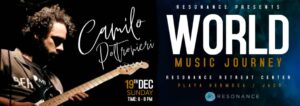The undecided remain above 40% in Costa Rica and it is unlikely that any of the candidates will win the presidency in the first electoral round on February 6th, revealed this past week a survey by the Center for Political Research and Studies (CIEP) from the State University of Costa Rica.
“At this point in the competition, the goal of reaching 40% of the vote by February 2022, and thereby avoiding a second round, remains unlikely,” the survey reports. The survey data indicate that 41% of people do not have a preferred candidate, which represents 7 points less compared to the previous measurement made last October, indicates the study was carried out using a panel method.
The study indicates that the candidate of the National Liberation Party (social democrat), the former president between 1994 and 1998, José María Figueres, is the one who leads the intention to vote with 17.2% support, which represents a decrease compared to the 19% registered in October.
It is followed by the aspirant of the Christian Social Unity Party (PUSC), the former vice president 2002-2006, LinethSaborío, with 15.1% support and a rise of 7 points since October when it registered 8%.
Then there is a block of 3 tied candidates: the evangelical pastor of the New Republic Party, Fabricio Alvarado (6.9%); the lawyer of the leftist Frente Amplio, José MaríaVillalta (6.8%) and the economist of the Social Democratic Progress Party, Rodrigo Chaves (6.2%).
Then the remaining 20 registered candidates appear, of which there are 12 who have preference levels that “are not significantly different from 0,” the survey reports.
A race between two large blocks
“The dispute for the presidency is beginning to take shape as a race in two large blocks. On the one hand, that of the two candidates that appear with the highest percentages of support and the second group that seeks to shorten differences, but with support less than half of those who lead,” adds the study.
Another piece of data from the survey indicates that 61% of those interviewed are totally determined to vote, 22% mentioned that they might vote; 7% said they may not vote and 10% indicated they will not.
About 3.5 million Costa Ricans are summoned to the polls on February 6th to choose the president and deputies for the period 2022-2026. If no candidate reaches 40% of the valid votes, a second-round will be necessary.


